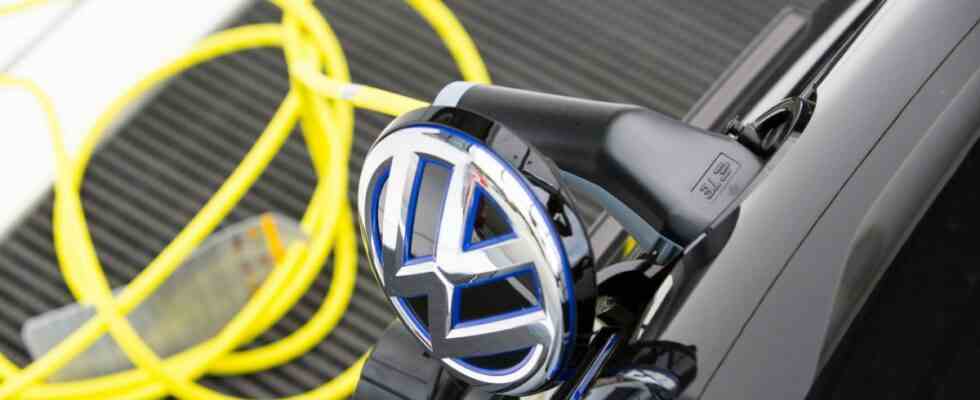A liter of petrol costs more than two euros and there is no end to the price spiral in sight: Anyone who has been toying with the idea of swapping their combustion engine for a purely electric car or a plug-in hybrid not only for environmental reasons, but also because of the lower maintenance costs , the trip to the gas pump could have given him the decisive kick. But just go to the car dealership, choose the model you want and in a few months the car will be in front of the door and the environmental premium from the state will be on the account – that could go wrong.
Customers have known for some time that some electric cars, such as the VW ID3 or the Skoda Enyaq, have such long delivery times that they won’t be available until next year at the earliest. But anyone who is interested in a plug-in hybrid from the VW Group is currently looking completely into the tube. Dealer circles leaked out that the Wolfsburg-based company is imposing an order freeze for models with hybrid drives. On Wednesday, “all currently available” plug-in hybrid versions of the Golf, Tiguan, Passat, Arteon and Touareg can now be ordered by customers for the last time. For these copies, however, delivery in the current year cannot be guaranteed. The group headquarters in Wolfsburg confirmed the step on Tuesday on request. A company spokesman told SZ that Audi will no longer be able to order plug-in hybrids for any model series from March 10 until further notice.
A lack of computer chips and wiring harnesses is slowing down production at all manufacturers
But why is the ripcord now being pulled in Wolfsburg and Ingolstadt on the partially electric vehicles? VW cites continuing problems in chip supply and further deliveries as the reason for this step. In addition, the “currently dramatic situation in the Ukraine” is cited – other car manufacturers also purchase cables and cable systems from there. Due to a lack of on-board electrical systems, the assembly lines at VW, Audi and Porsche, but also at BMW, are standing still in some production facilities. Thousands of employees are on short-time work.
But there is another reason why the plug-in hybrids are being hit now: Too long and unpredictable delivery times for these models could cost customers thousands of euros. Because the part-time streamers will only be subsidized by the state through the environmental bonus until the end of the year – with up to 6750 euros. The crux of the matter: The car buyer can only apply for the state share of up to 4500 euros once he has registered the car. So if the delivery of his car is postponed until next year, the then existing funding guidelines will apply – and what they will look like is currently still unclear. Federal Minister of Economics Robert Habeck has already announced that he wants to adjust the rules for 2023. It could be that plug-in hybrids will then no longer be subsidized at all. What is certain, however, is that the requirements for these models will at least be tightened.
BMW and Mercedes currently see no reason to remove plug-in models from the order
Order freezes for plug-in hybrids are not yet an issue for other German manufacturers. On request, both Mercedes and BMW announced that they were not planning any such measures for their part-time electric vehicles. Mercedes, on the other hand, recently stopped orders for the E-Class sedan, for which a successor is to be presented at the end of the year. Due to the increasing number of orders worldwide, the production volume has been exhausted, according to information from Stuttgart.
But at least there is good news for fans of small electric cars: the Wolfsburg-based company recently lifted an order freeze for the electric version of the smallest VW model, the E-Up. The car had been taken out of the range for a long time due to supply problems and high demand, but since March it has been available again from some dealers in an initially limited number.

